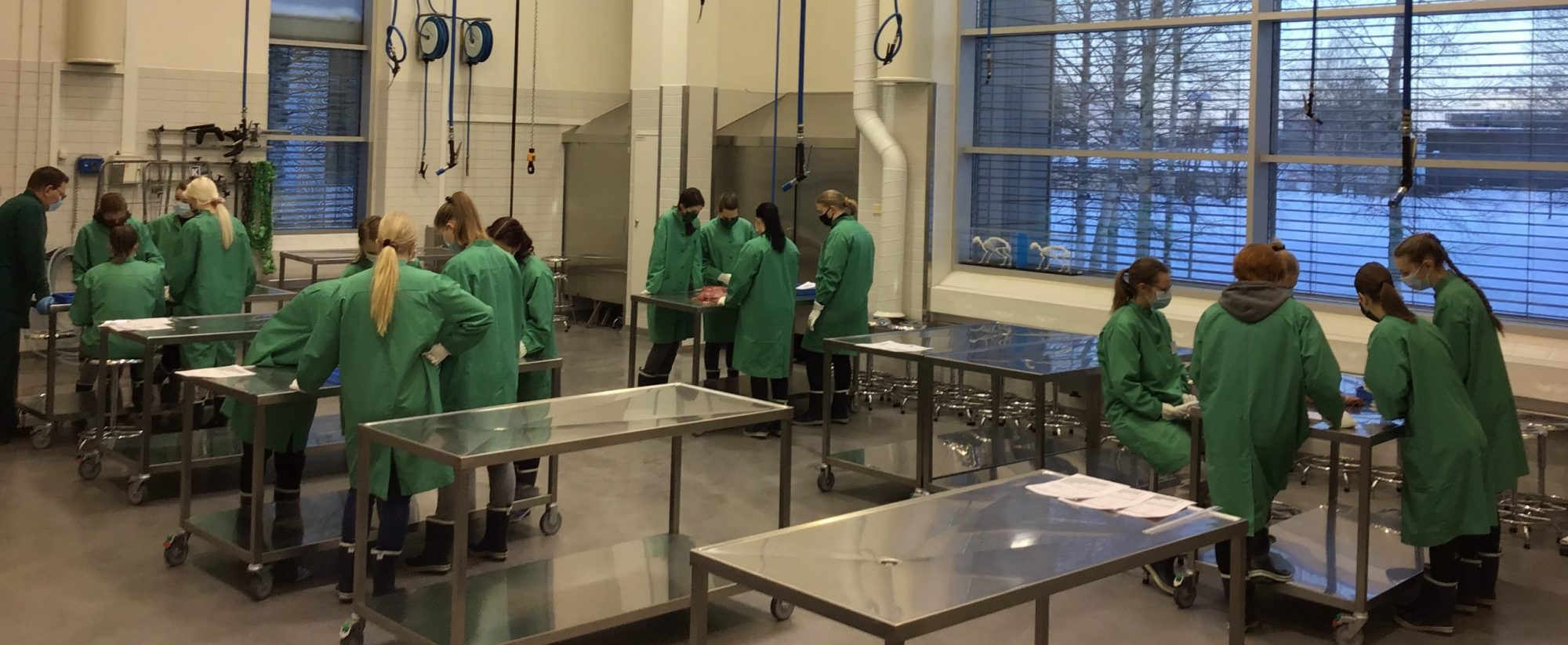The role of continuous learning increases
Undergraduate education in veterinary medicine provides students with the knowledge and skills required to work in a range of positions involving the promotion of not only animal but also human health and wellbeing. However, continuous learning as well as the maintenance and updating of professional skills are vital in our changing world, and they are also the statutory responsibility of all practising veterinarians.
The need for veterinarians’ specialist skills is predicted to increase. Due to structural change in agriculture, the size of farms continues to grow and the maintenance of cattle health requires more specialist skills from veterinarians. Infectious animal diseases are also a constant threat to Finnish animal production and food export. Today, companion and hobby animals are considered important family members, and people are willing to invest in their animals’ health and welfare. Humans and animals share many pathogens, which means that veterinarians also play an important role in preventing human infectious diseases. Pathogens can spread through direct contact with animals, but also through food, water and air. Continuing from high-quality and comprehensive basic education, narrower specialist training is required to meet all these challenges.
Current specialist training
Specialist training currently leads to a specialist degree in veterinary medicine and is provided by six degree programmes: small animal diseases, equine diseases, production animal medicine, environmental health, food production hygiene, and infectious animal diseases. Specialising veterinarians become acquainted with research-based knowledge in their field. This equips them to perform demanding tasks in their field, maintain their professional skills, develop their specialist field and work as a veterinary specialist in veterinary medical service and other positions requiring specialist skills.
Veterinarians licensed in Finland can apply for the right to complete specialist training when, following their graduation, they have worked at least one year in the specialist field of their choice, performing duties accepted by their prospective degree programme. Currently, specialist training in veterinary medicine can be completed in four years. It includes practical workplace training (of which some is completed in clinical fields at the Veterinary Teaching Hospital’s clinics), course-based theoretical training, written assignments and a degree programme-specific examination. For several years, the Ministry of Agriculture and Forestry has allocated funding for specialist training, which has been used for the University’s specialising veterinarian positions (nine full-time equivalents in 2020), but the Faculty receives no other funding for this training. The Finnish Food Authority decides on granting the licence of a veterinary specialist.
Each year, 15 to 44 applicants receive the right to pursue specialist training in veterinary medicine, and less than 20 students complete a specialist degree. In 2020 the right to complete specialist training was granted to 26 new students, 11 students graduated, and by the end of the year, 161 students admitted to specialist training were registered as attending students at the Faculty. However, the number of people holding the right to study was higher because some of them do not register each year at the University to complete their studies.
Ongoing reform of specialist training in veterinary medicine
Specialist training in veterinary medicine is guided and developed by the Faculty’s specialist training steering group. Its chair is appointed by the dean (currently, the author of this text), and its members include the coordinators of each degree programme. Over the years, small steps have been taken to develop and reform the training, but a major leap forward was taken in 2020. In accordance with the University’s guidelines, the status of the specialist qualification as a degree will probably be relinquished, and the reform will also include exploring the option of transferring the coordination responsibilities from the Ministry of Education and Culture to the Ministry of Agriculture and Forestry. These changes will also require amendments to current acts and decrees.
As part of the training reform, particular attention will be paid to future training needs and skills targets as well as future specialist fields and their number. At the same time, the duration of the training and the possibility to complete only parts of it or to concentrate on a narrower specialist field will also be considered. Other matters to be explored will include training cooperation with other organisations as well as the relationship of the training to continuous learning and to international education. Above all, solutions will be sought for the allocation of resources for the training. The aims are to expedite students’ graduation and increase the number of graduates. Drawing on the themes of the reform, the current specialist training management group is planning the first study module to be offered to students of all fields.
The training reform is led by a steering group headed by the dean and including Faculty representatives and a representative of the Ministry of Agriculture and Forestry. Functioning under this group is a development group appointed by the dean and consisting of stakeholder representatives and the University’s specialists. The development group is specifically examining the future needs and fields of specialist training. In spring 2021, a subject-specific group will be established in each specialist field to outline the details of training. The reform will take several years to complete, and the aim is to launch the redesigned training in autumn 2023.
I would like to thank all those responsible for the specialist fields for their continuous and determined efforts to develop specialist training in veterinary medicine!
Päivi Rajala-Schultz
Chair of the specialist training management group
Faculty of Veterinary Medicine
University of Helsinki
